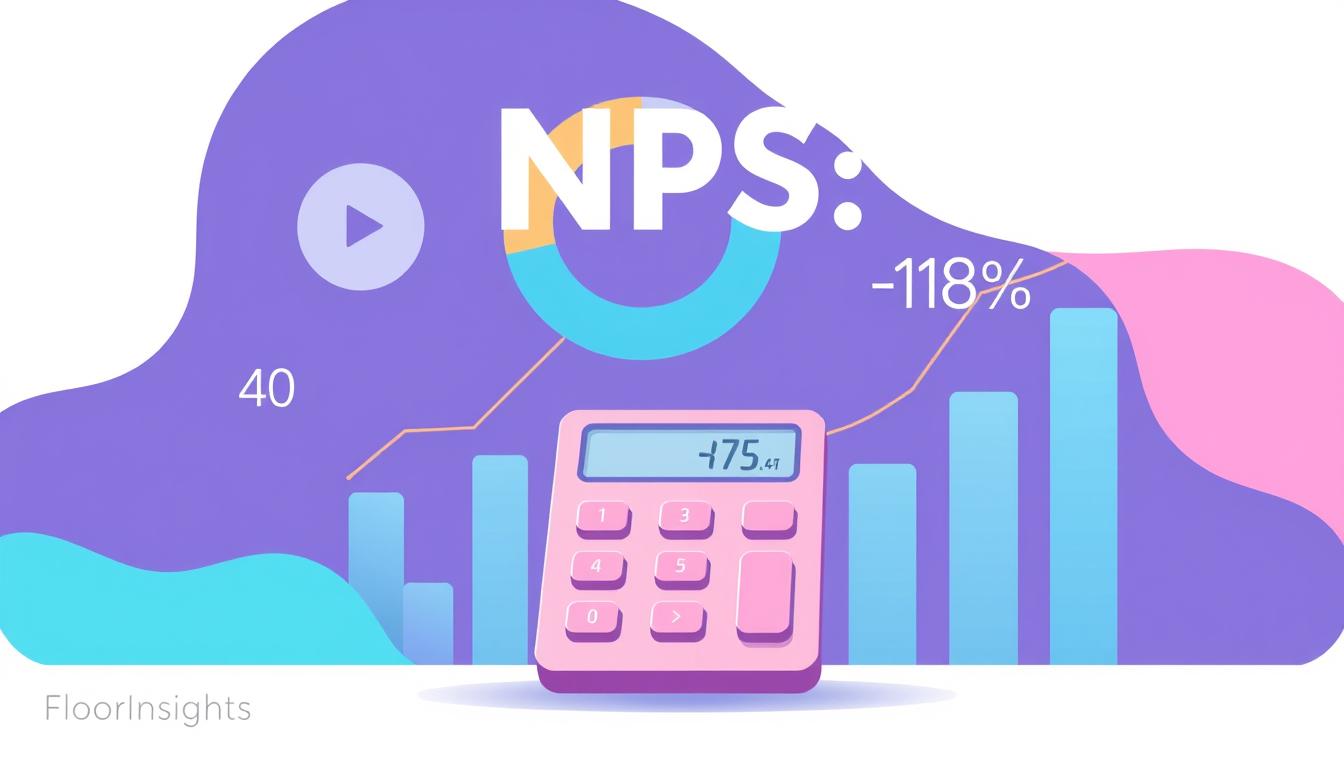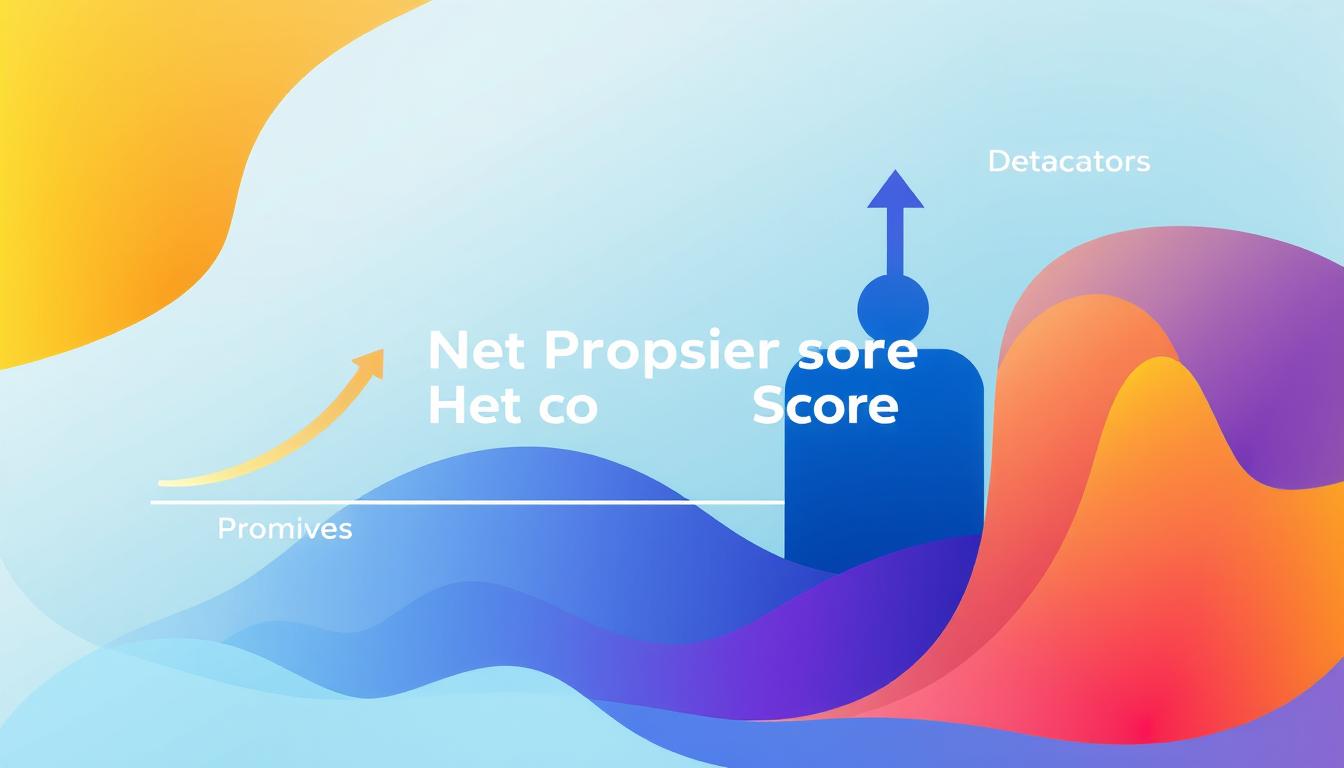In today’s digital landscape, the relevance of data security in NPS platforms has never been more critical. As organizations increasingly implement Net Promoter Score (NPS) initiatives, we face growing concerns surrounding customer privacy and the ethical handling of sensitive data. The imperative for effective customer data protection is paramount, especially within the evolving regulatory framework in India. By establishing robust data security protocols, we not only foster trust among our customers but also ensure compliance with the ethical standards demanded by NPS ethics. This section delves into the vital aspects of safeguarding customer information in NPS platforms, emphasizing the need for vigilance and accountability.
Key Takeaways
- Understanding the significance of data security in NPS platforms.
- Recognizing the importance of NPS ethics in data handling.
- Establishing effective customer data protection measures.
- Addressing regulatory compliance requirements in India.
- Building trust through transparency in NPS initiatives.
Understanding Data Security Challenges in NPS Platforms
In the landscape of NPS platforms, we encounter numerous data security challenges that necessitate our attention. These challenges often arise from various factors that can expose sensitive customers’ information. Among the most pressing issues are NPS data threats that stem from data breaches and improper handling of collected feedback. These threats not only compromise information security in customer feedback but also put the credibility of our organizations at risk.
One common situation involves vulnerabilities in system configurations. These weak points can serve as gateways for malicious actors seeking unauthorized access to customer data. Our reliance on digital platforms places an immense responsibility on us to ensure that these systems are adequately fortified against potential exploitation.
To address these risks effectively, we should consider the following crucial data security challenges:
- Inadequate access controls that allow unauthorized personnel to view sensitive data.
- Failure to encrypt data during transmission and storage, making it vulnerable to interception.
- Insufficient training for employees on best practices for handling customer information.
- Outdated software and applications lacking necessary security patches.
Understanding these elements helps us prioritize our data protection strategies. Implementing robust security measures not only combats the risk of NPS data threats but also enhances the overall trustworthiness of our platforms.
| Data Security Challenge | Description |
|---|---|
| Data Breaches | Unauthorized access to sensitive customer information, often leading to identity theft. |
| Improper Data Handling | Failure to manage customer feedback responsibly, which may result in data leaks. |
| System Vulnerabilities | Weak configurations in software that can be exploited by cybercriminals. |
| Lack of Encryption | Transmission and storage of data without encryption, exposing it to potential interception. |
Recognizing and addressing these data security challenges will serve to protect not only our information but also uphold the integrity of our NPS initiatives.
Importance of NPS in Customer Feedback
The importance of NPS in the realm of customer feedback can hardly be overstated. This powerful metric allows organizations to dive deep into customer loyalty and satisfaction. When we implement effective customer feedback methodologies, we uncover insights that can significantly impact our business strategies.
Many businesses have successfully leveraged the Net Promoter Score significance in their operations. For instance, a popular e-commerce platform utilized NPS to analyze customer responses to their service offerings. By collecting feedback, they identified areas for improvement and adjusted their strategies accordingly. As a result, they saw a marked increase in customer retention and satisfaction scores.
In another example, a major telecommunications company adopted NPS to gauge customer sentiment regarding their new service launches. The data gathered provided a clear picture of consumer expectations, enabling the company to refine its offerings based on actual user input. This approach not only enhanced customer experiences but also fostered loyalty to their brand.
These real-world instances clearly illustrate the importance of NPS as not just a number, but as a comprehensive tool for understanding the voice of the customer. By emphasizing customer feedback methodologies, organizations can align their services to meet and exceed customer expectations.
Net Promoter Score: An Overview
The net promoter score overview provides essential insights into how businesses can measure customer loyalty. This metric classifies customers into three distinct categories: promoters, passives, and detractors. Understanding the nuances of these groups is crucial for organizations aiming to enhance their customer relationships.
The NPS calculation is straightforward yet effective. It begins by asking customers a single question: “On a scale from 0 to 10, how likely are you to recommend our product/service to a friend or colleague?” Based on their responses, we categorize them as follows:
| Score Range | Category |
|---|---|
| 9-10 | Promoters |
| 7-8 | Passives |
| 0-6 | Detractors |
Once categorized, we can calculate the NPS by subtracting the percentage of detractors from the percentage of promoters. This simple formula provides a clear snapshot of customer sentiment and can be instrumental in driving strategic decisions.
Focusing on understanding net promoter score not only aids in gauging customer satisfaction but also helps organizations benchmark their performance against competitors. Studies have shown that companies utilizing NPS see significant improvements in customer retention and overall brand loyalty. We can leverage this powerful metric to enhance our service quality and align our offerings with customer expectations.
Ethics of Data Collection in NPS Initiatives
The ethics of data collection play a crucial role in shaping customer relationships within NPS initiatives. It is essential for businesses to practice transparency while gathering feedback from customers. Upholding NPS ethics involves not only obtaining informed consent but also respecting consumer rights in data privacy. Through clear communication, organizations can help ensure that customers understand how their data will be used and stored.
Key regulations, such as the General Data Protection Regulation (GDPR), emphasize the need for ethical handling of personal data. Companies operating in India must also adhere to specific laws that align with these principles. A breach in ethics may have serious implications, including loss of customer trust and potential legal ramifications.
To commit to the ethics of data collection, organizations should implement the following best practices:
- Ensure transparent data collection processes.
- Provide customers with clear information about their data rights.
- Establish and maintain secure systems for data storage.
- Engage in regular audits to assess compliance with data privacy regulations.
By prioritizing NPS ethics in their operations, organizations not only protect consumer rights in data privacy but also build a foundation of trust that fosters long-term relationships with their customers. This commitment can ultimately contribute to enhanced customer loyalty and brand integrity.
Best Practices for Protecting Customer Data
When it comes to maintaining robust customer data safety in NPS platforms, we must adopt a multifaceted approach. Implementing best practices data protection is essential for every organization that values customer trust and compliance with regulations.
First, securing data both at rest and in transit lays the foundation for a secure NPS implementation. Encryption plays a crucial role in safeguarding sensitive information during storage and transmission, helping to prevent unauthorized access.
Conducting regular security audits provides insight into potential vulnerabilities within the system. We can leverage these assessments to enhance existing protocols, ensuring that customer data safety remains a priority. During these audits, we identify loopholes and implement corrective measures proactively.
Employee training on data privacy is another critical component. Educating our workforce about data handling practices fosters a culture of awareness. Comprehensive training helps reduce human error, a leading cause of data breaches.
Below is a table summarizing key practices for protecting customer data:
| Practice | Description | Benefits |
|---|---|---|
| Data Encryption | Utilizing encryption methods for both data at rest and in transit | Enhances data security and prevents unauthorized access |
| Regular Security Audits | Assessing security measures and addressing vulnerabilities | Maintains a proactive stance against potential threats |
| Employee Training | Providing education on data protection protocols | Reduces the risk of breaches due to human error |
| Access Controls | Implementing strict access permissions for sensitive data | Limits exposure to only authorized personnel |
| Incident Response Plan | Establishing a clear protocol for responding to data breaches | Ensures quick action and damage control |
By implementing these strategies, we create a comprehensive data security framework that not only protects customer information but also strengthens customer relationships.
Regulatory Compliance and NPS Data Privacy
In the realm of NPS initiatives, understanding regulatory compliance in NPS is crucial for maintaining the trust of customers. Organizations in India must navigate several data privacy laws in India, particularly the Information Technology (IT) Act, which sets a framework for data protection. This includes requirements that directly affect NPS platforms, making compliance essential for legitimate business practices.
One primary focus of NPS data security regulations is the safeguarding of personal information collected during surveys. Failure to comply with these regulations not only jeopardizes customer relationships but also invites legal repercussions. Companies may encounter challenges, such as ensuring secure data transmission or putting in place adequate measures for data access control.
| Compliance Aspect | Details | Challenges |
|---|---|---|
| Data Collection | Adhering to the stipulated guidelines for obtaining customer consent. | Difficulty in ensuring informed consent among all customers. |
| Data Security | Implementing encryption and access controls for protecting sensitive data. | Maintaining robust security measures against evolving threats. |
| Data Retention | Complying with retention policies, ensuring data is not stored longer than necessary. | Balancing data analysis needs with compliance requirements. |
Given these complexities, we must be proactive in adopting best practices that align with the data privacy laws in India, ensuring we prioritize the integrity of customer data while also fulfilling our regulatory obligations.
AI for Customer Insights and Data Security
Artificial intelligence significantly enhances our capabilities in gleaning meaningful insights from customer data. By implementing AI for customer insights, we can analyze customer feedback efficiently and accurately. This technology allows us to identify patterns and trends that human analysts might overlook.
Data security with AI presents a dual advantage. Not only can we obtain valuable customer insights, but we can also ensure that sensitive data is adequately protected. The use of machine learning algorithms enables real-time monitoring of systems, flagging any unusual activities that might indicate a data breach or unauthorized access.
Leveraging AI in NPS initiatives empowers organizations to enhance their customer feedback processes. With advanced features like anomaly detection, we can proactively manage potential security threats while maximizing our understanding of customer sentiment. This combination of insights and protection fosters a secure environment where customer trust can flourish.
Incorporating AI technology into our NPS framework not only optimizes data collection but also strengthens our commitment to safeguarding customer information. Through effective implementation, we create a robust system capable of adapting to the evolving landscape of data security while providing rich insights into customer behaviors.
How to Improve Customer Satisfaction through Data Security
Prioritizing data security can significantly enhance customer satisfaction. By implementing robust data protection measures, we can create an environment where customers feel safe sharing their information. Understanding the data security impact on CSAT is crucial for any organization aiming to build loyal and satisfied clientele.
When we incorporate transparent data handling practices, we are actively enhancing trust in customer feedback. This trust fosters a positive relationship between our brand and customers. Here are some strategies we can adopt:
- Communicate our data protection policies clearly to customers.
- Conduct regular audits and updates of security measures.
- Offer educational resources about data security to customers.
- Solicit customer feedback on security measures to make informed improvements.
These actions not only show that we value customer privacy but also contribute to an overall sense of security. By focusing on how to improve customer satisfaction, we can establish a solid foundation for customer loyalty that ultimately drives success in our business endeavors.
Customer Insights AI: Strategies for Data Protection
In today’s digital landscape, the integration of customer insights AI plays a pivotal role in shaping our understanding of consumer behavior while ensuring data protection. Effective strategies for data protection are essential as we collect and analyze sensitive client information. By implementing robust AI data security methods, we can safeguard this data while harnessing valuable insights.
One of the primary tactics involves data anonymization. This approach minimizes the risk of exposing personal information by transforming data into a format that cannot be attributed back to identifiable individuals. By anonymizing customer data, we can leverage customer insights AI without compromising privacy.
Furthermore, employing secure machine learning models represents another vital strategy. These models can be designed with built-in security features, ensuring data remains protected throughout the analysis process. Regular audits of these AI systems contribute to enhancing our defense mechanisms, ultimately fostering trust with our clients.
We can also look at successful case studies to illustrate the implementation of these strategies. For instance, several leading companies have adopted AI data security methods that prioritize data protection, resulting in increased customer confidence and satisfaction. Their experiences serve as a valuable guide for organizations seeking to strike a balance between innovation and security.
| Strategy | Description | Benefits |
|---|---|---|
| Data Anonymization | Transforming personal data to prevent identification. | Safeguards privacy while enabling insightful analysis. |
| Secure Machine Learning Models | Using AI with built-in security features. | Protects data during the analysis process. |
| Regular Security Audits | Reviewing AI systems for vulnerabilities. | Enhances trust and data protection over time. |
Market Gap Analysis in NPS: Protecting Sensitive Data
In conducting a market gap analysis relevant to NPS initiatives, we focus on the core issues of NPS sensitive data protection. Organizations often face significant challenges in safeguarding customer information. Our analysis identifies the prevalent vulnerabilities in current data protection strategies.
Identifying data vulnerabilities is essential for enhancing data security in NPS frameworks. By recognizing the gaps, we can understand how organizations are managing customer feedback while ensuring robust protection against potential breaches. This proactive approach allows businesses to adapt their practices according to emerging threats.

The landscape of NPS data protection requires constant vigilance. Table 1 below illustrates common vulnerabilities and recommended improvements:
| Vulnerability | Description | Recommended Action |
|---|---|---|
| Weak Authentication | Inadequate user verification methods | Implement multi-factor authentication |
| Data Encryption Issues | Failure to encrypt sensitive data | Adopt industry-standard encryption protocols |
| Insufficient Access Controls | Lack of role-based access management | Establish strict access control policies |
| Unpatched Software | Failure to update security software | Regularly apply security patches |
| Inadequate Training | Poor employee awareness of data security | Conduct regular training on data protection |
Through this assessment, we can target critical areas for improvement. Our commitment to NPS sensitive data protection ensures that customer information remains secure while fostering trust and engagement within NPS frameworks.
Conclusion
As we sum up NPS data security, it is essential to highlight the significant role that ethical practices play in safeguarding customer information. In today’s digital landscape, where data breaches can compromise sensitive information, our commitment to ethical data collection and management should remain a top priority. We have the responsibility to ensure that customer feedback initiatives not only drive business growth but also uphold the highest standards of data protection.
Moreover, our final thoughts on NPS ethics emphasize the necessity of regulatory compliance in maintaining customer trust. By adhering to legal guidelines and implementing best practices, organizations can navigate the complexities of data privacy and security effectively. This approach allows us to engage with customers genuinely, making them feel valued while safeguarding their information.
Ultimately, it is clear that the importance of data protection cannot be overstated. By leveraging technology and adopting a proactive stance towards NPS data security, we can foster an environment where customer feedback contributes positively to business objectives, all while ensuring that data integrity and privacy are preserved. We must remain vigilant and dedicated to our role in protecting the information entrusted to us.
FAQ
What is the Net Promoter Score (NPS) and why is it important?
The Net Promoter Score (NPS) is a metric used to measure customer loyalty and satisfaction based on their likelihood to recommend a company’s products or services. It is important as it provides valuable insights that can help organizations improve customer experiences, leading to increased retention and growth.
How is the NPS calculated?
NPS is calculated by subtracting the percentage of detractors (customers who rate their likelihood to recommend as 0-6) from the percentage of promoters (those who rate 9-10). This results in a score ranging from -100 to +100, indicating overall customer sentiment.
What are the key data security challenges associated with NPS platforms?
Some of the primary data security challenges include potential data breaches, improper data handling practices, and vulnerabilities in system configurations. Addressing these challenges is critical for safeguarding sensitive customer information and maintaining trust.
How can organizations ensure ethical data collection practices for NPS initiatives?
Organizations can ensure ethical data collection by emphasizing transparency, informing customers about how their data will be used, and obtaining their consent prior to data collection. Adhering to regulations like GDPR also plays a vital role in maintaining customer rights in data privacy.
What best practices should organizations implement to protect customer data in NPS platforms?
Organizations should implement best practices such as securing data both at rest and in transit, conducting regular security audits, and providing employee training on data protection measures. By adopting these strategies, they can effectively enhance the security of customer information.
How does regulatory compliance affect NPS data privacy?
Regulatory compliance is essential in ensuring that organizations adhere to legal obligations regarding data privacy. Compliance with laws like the Information Technology (IT) Act in India helps protect customer data and mitigates risks associated with data mismanagement.
In what ways can AI enhance customer insights while ensuring data security?
AI technologies can enhance customer insights by providing real-time monitoring and anomaly detection, enabling organizations to identify and respond to security threats promptly. Integrating AI into NPS processes can significantly bolster data security while improving customer understanding.
What impact does data security have on customer satisfaction?
Prioritizing data security fosters customer trust, which is crucial for improving overall satisfaction rates. When customers feel their information is handled securely, they are more likely to engage positively with a brand, resulting in higher customer satisfaction and loyalty.
How can organizations identify market gaps related to consumer data protection in NPS?
Organizations can conduct market gap analyses to identify vulnerabilities in their current data protection strategies. By assessing the competitive landscape and discovering key areas for improvement, they can enhance their NPS initiatives while ensuring better data security practices.






